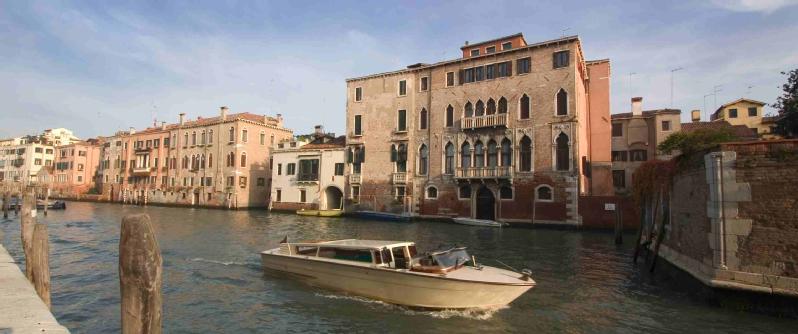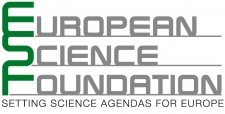Making Space for Festival, 1400 - 1700
Making Space for Festival, 1400–1700
Interactions of Architecture and Performance in Late Medieval and Early Modern Festivals
21–24 March 2013 Venice, Italy
A Joint Conference Organized by
The ESF Research Networking Programme PALATIUM and The Society for European Festivals Research
Co-Organizers
The University of Warwick, U.K. The University of Leuven, Belgium
 Registration Form
Registration Form
 Conference Programme
Conference Programme
 Book of Abstracts
Book of Abstracts
 Excursions Programme
Excursions Programme
The Conference
The conference will consider how princely and civic architecture of the period, together with ephemeral architecture constructed for the occasion, have contributed to the implied meaning of a diverse series of festivals across Europe between approximately 1400 and 1700. Scholars have interpreted festivals as temporarily transformative, through visual and dramatic agency, of the political and social significance of great houses and palaces. They have argued further that perceptions of a city’s built environment and princely houses were subject to idealising transformation as a result of ephemeral structures and performed actions during the occasion itself, and subsequently by means of festival books and other records.
Festivals were notable occasions of social and political exchange affecting a city’s reputation, and the political and cultural relations of its sponsoring authorities. These matters were addressed through drawing together opinion formers, including princes and ambassadors of nations and city states, as well as visitors, from across a wide and diverse range of European localities.
Much work of a comparative and analytical nature remains to be done in assessing the impact of individual festivals, as well as the broad phenomenon of festival’s significance in the transnational environment, following on from pioneering studies by Jean Jacquot and his colleagues in the 1960s and 70s, furthered by subsequent scholarship.
Drawing on the combined resources of PALATIUM and the Society for European Festivals Research, the conference will bring together leading experts in the interpretation of architectural and visual history with scholars versed in the history of festivals and their political, social, dramatic and artistic significance. It will thus provide opportunities for fruitful exchange between colleagues, and point the way to future areas of research collaboration.
PALATIUM
The conference forms part of the ESF Research Networking Programme PALATIUM. Court Residences as Places of Exchange in Late Medieval and Early Modern Europe (1400– 1700), on this occasion planned in collaboration with the Society for European Festivals Research. The PALATIUM programme aims at creating a common forum for research on the late medieval and early modern European court residence or ‘palace’ (palatium) with an interdisciplinary perspective. The world of the courts 1400–1700 constituted a network of truly European scale and international character, but its architecture is only rarely studied in its ‘connectivity’. In this programme the ‘palace’ is seen as a location for cultural exchange. Human interaction in this space is regulated and codified by a set of rules, known as ‘ceremonial’. The interaction between palace architecture (tangible) and ceremonial (intangible, but known through a set of tangible testimonials of different types, written and visual) is one of the key questions the PALATIUM network aims to address.
The palace’s space and form carry multiple connotations. To the informed observer they represent power, lineage, and tradition versus innovation. The decoding of this system of signs necessitates input not only by architectural and art historians, but also by various other disciplines, such as archaeology, politics, literature, theatre and music. The PALATIUM programme seeks to encourage theoretical and methodological debates in the field, and aims in particular at stimulating exchanges of knowledge and experience between historians, architectural historians, art historians, and researchers in related disciplines – thus building up a network of scholars, institutions and research groups across Europe which mirrors the international network of courts that is being examined.
So far PALATIUM has organized around a dozen scientific meetings across Europe, ranging from methodological workshops and colloquia on specific topics to large thematic conferences. The 2013 conference in Venice will be its second thematic conference; the first thematic conference, The Habsburgs and their Courts in Europe, was held in Vienna in 2011. For further information on the various events organized by PALATIUM, see:
The Society for European Festivals Research
The Society, formed as one outcome of an ESF‐sponsored workshop (Venice, 2010), draws together scholars from across Europe and further afield who have published books and articles on the performance history of European festival, together with festival’s political, social, cultural and economic meanings, or who have an academic interest in one or more of these topics. By means of conferences and workshops, as well as an active website and other means of communication, the Society promotes the development of scholarship in the relevant areas, across a wide range of traditional disciplines. A monograph series of publications with Ashgate publishers, including a Research Companion, is in its formative stages. Book‐length collections of essays based on the first conferences are at press or in preparation. The Society encourages young researchers by providing opportunities to contribute to its workshops and conferences, and by facilitating the path towards publication. Its 2013 conference in Venice follows conferences and workshops in Venice, London, Bergamo and the University of Warwick. The 2013 conference will broaden the Society’s range by focusing specifically on the architectural environment of festival. It will also provide opportunities for scholarly exchange, both during the conference and subsequently, between members of PALATIUM and the Society. Any persons of suitable qualifications, including independent scholars, are welcome to respond to this Open Call for Papers. In particular, members of PALATIUM as well as members of the Society are warmly invited to submit proposals.
Costs and Registration
Attending the conference is free; registration is required. Please register by submitting this registration form ![]() . There will be charges for optional excursions and for the conference dinner. The European Science Foundation provides funding for travel and accomodation of the selected speakers, and of a limited number of grantees (see below). ESF regulations for funding imply that priority shall be given to scholars from ESF member countries which support PALATIUM.
. There will be charges for optional excursions and for the conference dinner. The European Science Foundation provides funding for travel and accomodation of the selected speakers, and of a limited number of grantees (see below). ESF regulations for funding imply that priority shall be given to scholars from ESF member countries which support PALATIUM.
Publication of Papers
Papers presented at the conference will be considered for publication, after further work and in response to issues raised at the conference or subsequently, in the series published by Ashgate Publishing for the Society for European Festivals Research. The editors in this case will be J. R. Mulryne and Krista De Jonge. Publication is in both printed and eBook formats. The Society may commission additional articles to ensure adequate coverage of the topic. The Society does not publish Conference Proceedings.
Call for Posters
PALATIUM and SEFR wish to encourage and share the work of early‐career researchers. Postgraduate researchers in particular are invited to submit proposals for posters to be displayed at the conference. In addition to conference display, accepted posters will be placed after peer review on the organisations’ websites.
Posters should outline and where appropriate visually illustrate the applicant’s work in progress. They should also carry the applicant’s name and academic profile (degree obtained and degree registered for, where appropriate) and the name and affiliation of any degree supervisor.
To apply, send the text for your proposed poster, limited to 300‐500 words, by e‐mail to the conference coordinator Margaret Shewring (m.e.shewring@warwick.ac.uk). Successful applicants will receive a template for setting out posters accepted for display. Before publication, copyright permission must be obtained for illustrations.
Presentation of Posters at the Conference
The Conference’s Scientific Committee will select a small number of the accepted posters for presentation during the conference. Each applicant selected in this way will be allocated ten minutes to summarise his or her poster and to offer further comment on its topic.
Convenors/Conference Chairs
J. R. MULRYNE (University of Warwick), Co‐Convenor, SEFR Krista DE JONGE (University of Leuven), PALATIUM Chair
Conference Scientific Committee
Birgitte BØGGILD JOHANNSEN (National Museum of Denmark)
Monique CHATENET (Centre André Chastel, INHA, Paris)
Iain FENLON (University of Cambridge)
Bernardo J. GARCÍA GARCÍA (Fundación Carlos de Amberes), PALATIUM co‐Chair Pieter MARTENS (University of Leuven), PALATIUM Coordinator
Margaret M. MCGOWAN (University of Sussex), Co‐Convenor, SEFR Margaret SHEWRING (University of Warwick), Co‐Convenor, SEFR
Conference Coordination
Margaret SHEWRING
University of Warwick
Department of Theatre, Performance and Cultural Policy Studies Millburn House
University of Warwick
Coventry CV4 7HS
England
E: m dot e dot shewring at warwick dot ac dot uk
T: +44 (0)2476 523022
Venue
The conference will be held in Palazzo Pesaro Papafava, Venice, a Renaissance palazzo constructed in the mid‐fifteenth century overlooking the Canale della Misericordia, with entrances from the canal and from the Calle de la Rochetta (district of Cannaregio). It is currently a Research and Teaching Centre of the University of Warwick.

Palazzo Pesaro Papafava, Venice
Poster Download:





